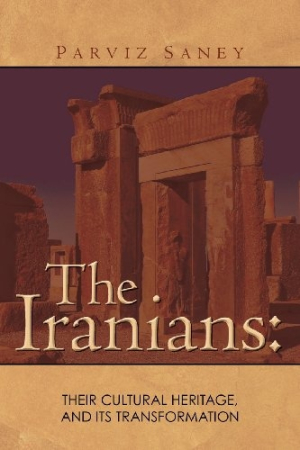It looks like you've stumbled upon a page meant to be read by our code instead of viewed directly. You're probably looking for this page.
The Iranians
Their Cultural Heritage and Its Transformation
Iranians possess such an “enormous national pride,” says Parviz Saney of his fellow countrymen, that they “as a whole never acknowledge defeat.” While this inner strength has often served them well in the darker periods of their twenty-five hundred years as a people, it is also their greatest failing. According to Saney—a law professor, author, and former university academic vice-chancellor—Iranians “easily distort facts and figures to prove success in everything they do.” They do this “without realizing that they are distorting the truth” or because of “feeling that what they do is morally justified!”
This penchant for distortion is rooted deeply in the Iranian national psyche and culture, explains Saney in his monumental history, The Iranians: Their Cultural Heritage and Transformation. While he may take Iranians to task for their faults of arrogance and self-deception, the professor, who left Iran three years after the 1979 Islamic revolution and now lives in the United States, is also immensely and justifiably proud of the accomplishments and contributions of the descendants of the ancient Medes and Persians. His work is part homage to their former glory, part lament for what has been taken from them by a tyrannical regime, and part prayer for a time when they will rise to “revive the pride, prosperity and peace the Iranians rightfully deserve.”
Most of Saney’s book is devoted to those times of pride and prosperity that typified imperial Persia. That era began with Cyrus the Great, who, in the sixth century before the common era, set out to “conquer the whole of the then existing known world.” The empire continued to grow until the Arab conquest a thousand years later. This grand march was interrupted by Alexander the Great, and although he may have conquered Persia militarily, its people and culture eventually won over and absorbed the conquerors. Such is and was, argues Saney, the strength, depth, and vibrancy of this ancient and persistent civilization.
Just as they survived Alexander and his Greeks and Macedonians to rise phoenix-like and build the Parthian and Sassanian empires, so, argues Saney, did Iranians maintain their identity under Arab, Mongol, and Turkish rule. They eventually broke free under the Safavids in the 1500s and the Qajars in the 1700s to build modern Iran. A child of the old regime that fell to the ayatollahs in 1979, Saney has nothing good to say of the country’s current rulers, whom he chides for having brought about a “mournful existence” for his people.
Saney’s work is, on the surface, a tour of the history and contributions of an ancient and continuing civilization. The Zoroastrianism and Mithraism that provided the fire for that civilization, believes Saney, still exists just beneath the veneer of the Shi’a brand of Islam that forms the basis for the current theocracy. He believes that the positive values and forward-looking perspectives of those early philosophies will eventually win out over the dark cult of doom and martyrdom that lies like a cloud over his country.
Saney’s hopes and history aside, it is his insight into the Iranian national psyche that makes his book of special value and relevance in the current and highly charged political climate, in which politicians in Tehran, Tel Aviv, and Washington rattle nuclear sabers and threaten Armageddon. For those who desire to understand Iran, they will find no better primer than this volume.
Reviewed by
Mark McLaughlin
Disclosure: This article is not an endorsement, but a review. The publisher of this book provided free copies of the book and paid a small fee to have their book reviewed by a professional reviewer. Foreword Reviews and Clarion Reviews make no guarantee that the publisher will receive a positive review. Foreword Magazine, Inc. is disclosing this in accordance with the Federal Trade Commission’s 16 CFR, Part 255.
